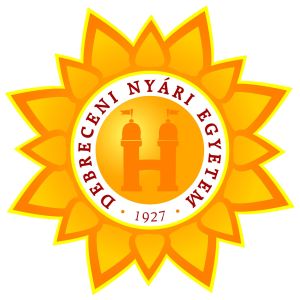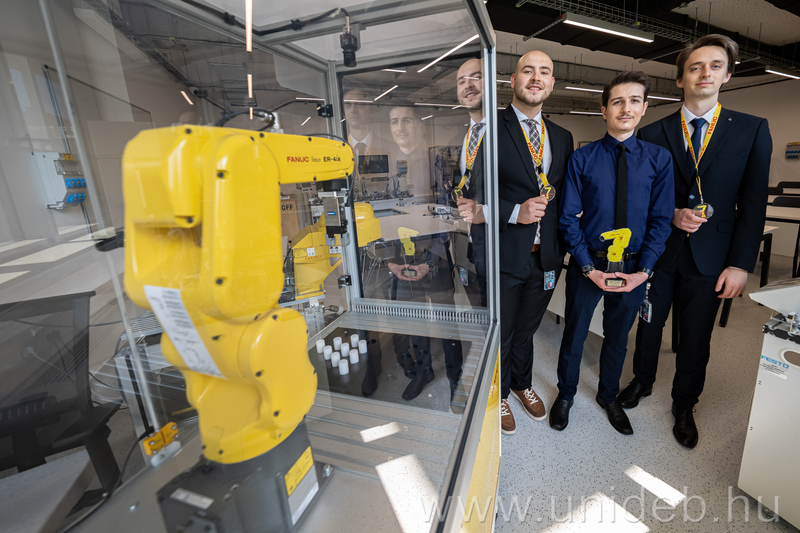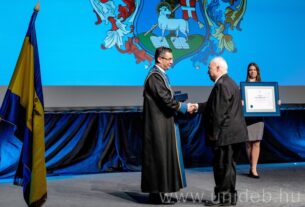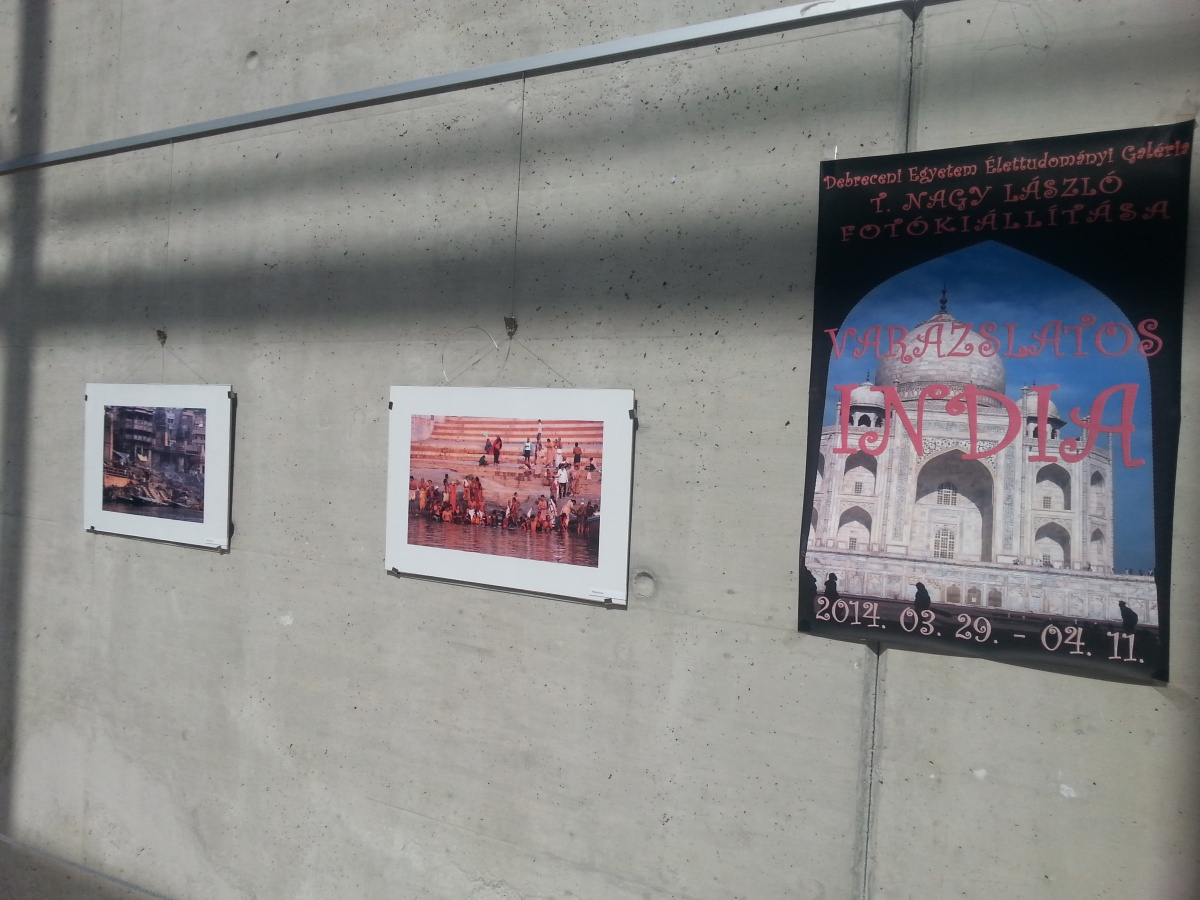The industrial robotics team of the Faculty of Engineering at the University of Debrecen has won first place at the national selection round of the FANUC Olympics in Törökbálint. With this victory, they earned the right to represent Hungary in the global finals of the WorldSkills competition in the Industrial Robotics category, to be held in China.
The team, made up of two MSc mechatronics engineering students from the Faculty of Engineering (MK) at the University of Debrecen (DE), prepared for nearly a year for the Hungarian round of the WorldSkills industrial robotics competition. The three-day event saw teams from four domestic universities and one high school team — winners of the Szakma Sztár Festival — take on a complex automation task. The DE students performed exceptionally well, securing first place and the honor of representing Hungary in next year’s global finals.
“It is always a great honor to represent Hungary in the WorldSkills finals. This will be the fourth time that students from our department participate — and in three of those instances, we trained both team members,” emphasized Géza Husi, Dean of the Faculty of Engineering.
Sándor Hajdu, Head of the Department of Electrical and Mechatronics Engineering at DE MK, added: “We’ve built a young and dynamic teaching community that motivates students to achieve results like this.”
He also highlighted the impact of new resources: “Our recently opened lab facilities have significantly supported our work. The team prepared for the FANUC Olympics national selection in our newly established, well-equipped ‘Robotics and Industry 4.0’ lab.”
The winning duo — Árpád Károly Kis and Dániel Vígh — were mentored by Gyula Korsoveczki, a PhD student and assistant lecturer at the faculty. He explained that on the first day of the selection round, participants were given an empty robot cell, which they had to build from scratch — including actuators, pneumatic cylinders, rotary tables, sensor connections, and electronics — and then wire it all together.
“The competitors had to calibrate tools, simulate the grinding of workpieces, and then program the entire process. The robot had to perform every single move involved in the workflow — just as it will be expected at the world finals,” said Korsoveczki.
While one team member physically built and programmed the robot, the other had to replicate the entire process using digital simulation. Every step was also carefully documented.
The WorldSkills Industrial Robotics global final will be held next September in Shanghai, where the Debrecen team will compete against winners from 40–60 other countries.
(unideb.hu)


















